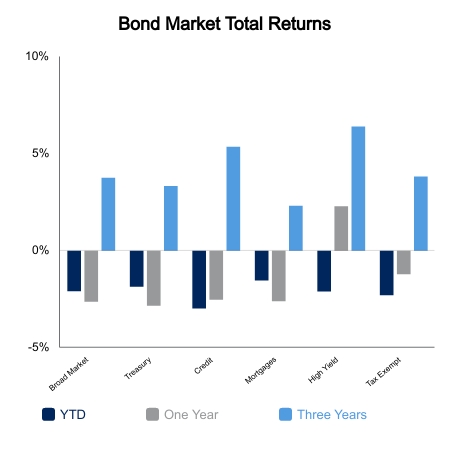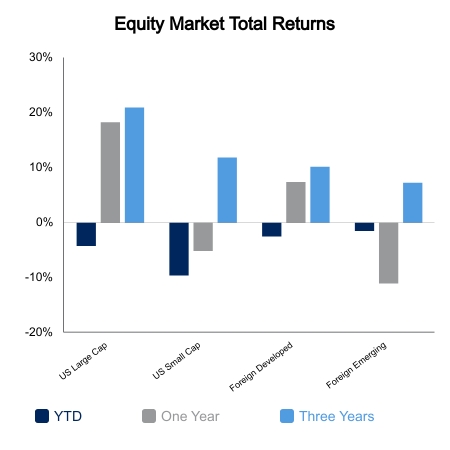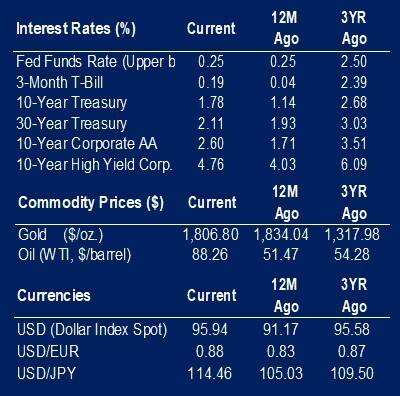The U.S. economy, as measured by Gross Domestic Product (GDP), grew by 6.9% in the fourth quarter over the previous quarter. The growth in GDP was led by increases in private inventory investment, exports, personal consumption expenditure and nonresidential fixed investment. Rolling off government stimulus programs led to reductions in federal, state and local government spending. The Omicron surge negatively impacted growth in the latter part of the quarter. The increase of 6.9% was a significant increase over last quarter’s growth of 2.3%. Growth of 5.3% was expected for the fourth quarter. The year ended with annual growth of 5.5% in 2021. Please note, these numbers are preliminary.
There was a decrease in durable goods orders in December with 0.90% less orders. A reduction in orders of transportation equipment weighed on the number. Excluding transportation, durable goods orders increased by 0.4%. Defense orders also detracted from total orders. Excluding defense, orders were up 0.1%.
Personal consumption expenditure (PCE) was down 0.60% in December from November. This is slightly higher than the expected decrease of 0.70%. The decrease was led by spending in recreational goods and vehicles. Year-over-year, PCE is up 5.8%, contributing to inflation concerns. PCE is the preferred inflation measure of the Federal Reserve.
Personal income (PI) was flatter than expected in December. The increase of 0.30% was lighter than the expected 0.50%. Increases in compensation contributed to PI being up. A decrease in proprietor income weighed on growth. Decreasing government social benefits from the pandemic negatively impacted growth in income.
There was a sharp drop in pending home sales in December. The drop of 3.8% compares unfavorably with the expected increase of 0.8%. The decline has been attributed to the tightness in housing supply. There are not enough homes available for sale. Another factor to watch out for is increasing mortgage rates associated with an increasing interest rate environment. The combination of high home prices with higher mortgage payments will likely deter some from looking for homes on the market.
The final reading for the January Michigan Sentiment Indicator showed a decline in consumer sentiment of -4.8%. The 67.2 number is 15% lower than last year’s 79. The Delta and Omicron variants of COVID negatively impacted consumer views on economic growth.
 |
 |

Source: BTC Capital Management, Bloomberg LP, Ibbotson Associates, FactSet, Refinitiv.
The information provided has been obtained from sources deemed reliable, but BTC Capital Management and its affiliates cannot guarantee accuracy. Past performance is not a guarantee of future returns. Performance over periods exceeding 12 months has been annualized.
This content is provided for informational purposes only and is not intended as an offer or solicitation with respect to the purchase or sale of any security. Statements in this report are based on the views of BTC Capital Management and on information available at the time this report was prepared. Rates are subject to change based on market and/or other conditions without notice. This commentary contains no investment recommendations and should not be interpreted as investment, tax, legal, and/or financial planning advice. All investments involve risk, including the possible loss of principal. Investments are not FDIC insured and may lose value.

